- Home
- Patricia Cornwell
Predator Page 32
Predator Read online
Page 32
“Did Helen go to a psychiatrist?”
“Not at that time,” Fred says. “She was just strange. Not unstable like Mom but strange. She did well in school, really well, then went off to Harvard and crashed and burned, was found in the lobby of some funeral home up there, didn’t know who she was. As if things weren’t bad enough, Dad died. Mom went into a real downhill spiral, would go places on the weekends, not tell me where she was, freaking me out. It was awful.”
“So the police figured she was unstable and into disappearing acts, and maybe ran off with Helen?”
“I wondered it myself. I still wonder if my mom and sister are out there somewhere.”
“How did your dad die?”
“Fell off a ladder in the rare-book library. The house in Palm Beach was three stories, everything marble and stone tiles.”
“He home alone when it happened?”
“Helen found him on the first-floor landing.”
“She was the only one in the house at the time?”
“A boyfriend, maybe. Don’t know who.”
“When was this?”
“A couple months before she and Mom disappeared. Helen was seventeen then, precocious. Well, truthfully, after she came home from Harvard, she was completely out of control. I’ve always wondered if it was a reaction to my dad, my uncle, the people on my dad’s side of the family. Extremely religious and serious, Jesus this, Jesus that, big in their churches. Deacons, Sunday-school teachers, always trying to witness to people.”
“You ever meet any of Helen’s boyfriends?”
“No. She ran around, would disappear for days. Just trouble. I didn’t come home if I didn’t have to. Mom’s Christmas obsession is such a joke. It was never Christmas in our house. It was always pretty damn awful.”
He gets up from the table. “Mind if I have a beer?”
“Help yourself.”
He picks out a Michelob, twists off the cap. He shuts the refrigerator door and sits back down.
“Was your sister ever hospitalized?” Lucy asks.
“Same place Mom was. For a month right after she dropped out of Harvard. Club McLean, I called it. The good ole family genes.”
“McLean in Massachusetts?”
“Yup. You ever take notes? I don’t know how you can remember all this.”
Lucy fingers the pen she’s holding, the small recorder turned on and invisible in her pocket.
“We need your mom’s and sister’s DNA,” she says.
“I don’t have any idea how we’re going to get it now. Unless the police still have that stuff.”
“Yours will work. Think of it as family-tree DNA,” Lucy says.
59
Scarpetta looks out the window at the cold, white street. It is almost three, and she has been on the phone most of the day.
“What kind of screening do you have? You must have some system in place for controlling who makes it on the air,” she says.
“Of course. One of the producers talks to the person, makes sure he isn’t crazy.”
It seems an odd choice of words for a psychiatrist.
“In this case, I’d already had a conversation with the man, the lawn-service man. It’s a long story.” Dr. Self is talking fast.
“He said his name was Hog when you talked to him the first time?”
“I didn’t think anything about it. A lot of people have wacky nicknames. I just need to know. Did some elderly lady suddenly turn up dead, a suicide? You would know, wouldn’t you? He threatened to kill me.”
“I’m afraid a lot of elderly ladies turn up dead on a regular basis,” Scarpetta replies evasively. “Can you give me a few more details? What exactly did he say?”
Dr. Self recounts the story of the blighted citrus trees in the old woman’s yard, of her grief over the loss of her husband, of her threat to kill herself with her dead husband’s shotgun if the lawn-service man—Hog—had her trees destroyed. Benton walks into the living room with two coffees, and Scarpetta puts Dr. Self on speakerphone.
“Then he threatened to kill me,” Dr. Self says again. “Or said he was going to but changed his mind.”
“I’ve got someone with me who needs to hear this,” Scarpetta says, and she introduces Benton. “Tell him what you just told me.”
Benton sits on the couch as Dr. Self replies that she doesn’t understand why a forensic psychologist in Massachusetts would have any interest in a suicide that may or may not have happened in Florida. But he might have a valid opinion about a threat on her life, and she would love to have him on her show sometime. What sort of person would threaten her like that? Is she in danger?
“Does your studio keep track of the call-ins through caller ID?” Benton asks. “Are the numbers stored, even temporarily?”
“I would think so.”
“I’d like you to find that out right away,” he says. “Let’s see if we can determine where he was calling from.”
“I do know we don’t accept unidentified calls. You have to disable the caller ID block, because once I had this insane woman threaten to kill me on the air. It’s not the first time it’s happened. Her call came in as unidentified. No more.”
“Then you’re obviously capturing the numbers of whoever is calling in,” Benton says. “What I’d like is a printout of the numbers of everybody who called in during the show earlier this afternoon. What about when you talked to this lawn man the first time? You mentioned you had a phone conversation with him. When was that, and was the call local? Did you capture the number in a log?”
“Late Tuesday afternoon. I don’t have caller ID. I have an unlisted, unpublished number and don’t need it.”
“Did he identify himself?”
“As Hog.”
“He called your house?”
“My private office. I see patients in the office behind my house. It’s really a guesthouse-slash-pool house.”
“How might he have gotten the number?”
“I have no idea, now that you mention it. Of course, my colleagues, anybody I do business with, my patients have it.”
“Any possibility this man might be one of your patients?”
“I didn’t recognize his voice. I can’t think of anybody I see who might have been him. There’s something more going on here.” She gets pushy. “I think I have a right to know if there’s something more about this than meets the eye. In the first place, you haven’t confirmed whether there’s an old woman who committed suicide with a shotgun because of her blighted citrus trees.”
“Nothing quite like that.” It is Scarpetta who speaks. “But there is a very recent case that sounds similar to what you just described, an elderly woman whose trees were marked for eradication. A shotgun death.”
“My God. Did it happen after six p.m. this past Tuesday?”
“Probably before that,” Scarpetta says, fairly certain she knows why Dr. Self is asking.
“That’s a relief. Then she was already dead by the time the lawn man, Hog, called me. He called maybe five, ten minutes after six and asked to be on my show, told the story about the old woman threatening to kill herself. So she must have already done it. I wouldn’t want to think her death had something to do with him wanting to be on my show.”
Benton gives Scarpetta a look that says, What a narcissistic, insensitive bitch, and says to the speakerphone, “Right now we’re trying to figure out a lot of other things, Dr. Self. And it would be helpful if you could give us a little more information about David Luck. You prescribed Ritalin to him.”
“Are you now saying something horrible’s happened to him, too? I know he’s missing. Is there something new?”
“There’s reason to be greatly concerned.” Scarpetta repeats what she’s said in the past. “We have reason to be very concerned about him, his brother and the two sisters they lived with. How long have you been seeing David as a patient?”
“Since last summer. I think he first came to see me last July. It might have been late June. Both
parents had been killed in an accident and he was acting out a lot, doing poorly in school. He and his brother were homeschooled.”
“You saw him how often?” Benton asks.
“Usually once a week.”
“Who brought him to his appointments?”
“Sometimes Kristin. Sometimes Ev. Now and then they both brought him, and on occasion I would meet with the three of them.”
“How was David referred to you?” It is Scarpetta who asks. “How did he end up in your care?”
“Well, it’s rather poignant. Kristin was a call-in. Apparently, she listens to my show a lot and decided maybe she could get hold of me that way. She called in to my radio show and said she was taking care of a South African boy who had just lost both his parents and he needed help, et cetera, et cetera. It was quite a heartbreaking story, and I agreed on the air to see him. You would be amazed at the mail I got from my listeners after that. I still get mail, people wanting to know how the little South African orphan is doing.”
“Do you have a tape of the show you’re talking about?” Benton asks. “An audio clip?”
“We have tapes of everything.”
“How quickly could you get me that audio clip, and one from your television show earlier today? I’m afraid we’re snowed in up here—at the moment, anyway. We’re doing what we can remotely but are somewhat limited.”
“Yes, I hear you’ve had quite the storm up there. Hope you don’t lose power,” she says, as if they’ve just spent the past half-hour having a pleasant conversation. “I can call my producer right now, and he can get it to you by e-mail. I’m sure he’ll want to talk with you about being on my show sometime.”
“And the phone numbers of the callers,” Benton reminds her.
“Dr. Self?” Scarpetta says, looking out the window with dismay.
It is starting to snow again.
“What about Tony? David’s brother?”
“They fought a lot.”
“Did you see Tony, too?”
“I never met him,” she says.
“You said you know both Ev and Kristin. Did one of them have an eating disorder?”
“I wasn’t treating either one of them. They weren’t my patients.”
“I should think you could tell by looking at them. One of them was on a steady diet of carrots.”
“Based on her appearance, Kristin,” she replies.
Scarpetta looks at Benton. She had the Academy’s DNA lab contact Detective Thrush the instant she discovered the yellowish dura mater. DNA from the dead woman up here has been matched to DNA from yellowish stains on a blouse Scarpetta removed from Kristin’s and Ev’s house. The body in the Boston morgue most likely is Kristin, and Scarpetta has no intention of relaying this information to Dr. Self, who might very well talk about it on the air.
Benton gets up from the couch to put another log on the fire as Scarpetta gets off the phone. She watches the snow. It falls fast in the light of the lamps at Benton’s front gate.
“No more coffee,” Benton says. “My nerves have had it.”
“Does it do anything besides snow up here?”
“The main streets are probably already clear. They’re amazingly fast up here. I don’t think the boys have anything to do with this.”
“They have something to do with it,” she says, moving in front of the fire, sitting on the hearth. “They’re gone. It appears Kristin’s dead. Probably all of them are.”
60
Marino calls Joe while Reba sits quietly nearby, engrossed in hell scenes.
“I’ve got a few things to go over with you,” Marino tells Joe. “There’s a problem.”
“What kind of problem?” he says cautiously.
“You need to hear about it from me. I’ve got to return a few calls in my office, take care of a few things. Where you going to be during the next hour?”
“Room one twelve.”
“You there now?”
“Walking that way.”
“Let me guess,” Marino says. “Working on another hell scene you stole from me?”
“If that’s what you want to talk to me about…”
“It’s not,” Marino says. “It’s a whole lot worse than that.”
“You’re really something,” Reba says to Marino, placing the file of hell scenes back on his desk. “They’re really good. They’re brilliant, Pete.”
“We’re going to do this in five, give him time to get into his office,” and now he has Lucy on the phone. “Lay it on me, what do I do?”
“You’re going to hang up, so am I, then hit the conference button on your desk phone and dial my cell phone. When I answer, hit conference again and dial your cell phone. Then you can either put your desk phone on hold to keep the line open or just leave it off the hook. If someone’s monitoring our call, he’s going to assume you’re in your office.”
Marino waits a few minutes, then does what she said. He and Reba walk out of the building while he and Lucy talk to each other on their cell phones. They have a real conversation while he hopes like hell that Joe is listening in. He and Lucy are lucky so far. The reception is good. She sounds as if she’s in the next room.
They chat about the new motorcycles. They chat about all sorts of things as Marino and Reba walk.
The Last Stand motel is a modified double-wide trailer that has been divided into three rooms that are used for mock crime scenes. Each section has a separate door with a number on it. Room 112 is in the middle. Marino notes that the curtain is drawn over the front window, and he can hear the air conditioner running. He tries the door and it’s locked, and he kicks it hard with his big, Harley-booted foot and the cheap door flies open and slams against the wall. Joe is sitting at the desk, the receiver to his ear, a tape recorder hooked up to the phone, his face shocked, then terrified. Marino and Reba look at him.
“Know why they call this the Last Stand motel?” Marino asks, walking over to Joe, grabbing him out of the chair as if he weighs nothing. “Because you’re as dead as Colonel Custer.”
“Let me go!” Joe yells.
His feet are off the floor. Marino is holding him up by his armpits, their faces inches apart. Marino shoves him against a wall.
“Let me go! You’re hurting me!”
Marino drops him. He sits down hard on the floor.
“You know why she’s here?” He indicates Reba. “To arrest your sorry ass.”
“I didn’t do anything!”
“Falsifying records, grand larceny, maybe homicide since you obviously stole a gun that was used out of state to blow a lady’s head off. Oh, and add fraud,” Marino adds to the list, not caring if any of it’s valid.
“I didn’t! I don’t know what you’re talking about!”
“Quit yelling. I’m not deaf. See, Detective Wagner here’s a witness, right?”
She nods, her face hard. Marino’s never seen her look so scary.
“You see me lay a finger on him?” he asks her.
“Absolutely not,” she says.
Joe is so scared, he might wet himself.
“You want to tell us why you stole that shotgun and who you gave it to or sold it to?” Marino pulls up the desk chair, turns it around, sits on it backward, his huge arms resting on the back. “Or maybe you blew the lady’s head off. Maybe you’re living out hell scenes, only I didn’t write that one. You must have stole it from someone else.”
“What lady? I didn’t kill anybody. I didn’t steal a shotgun. What shotgun?”
“The one you checked out last June twenty-eighth at three-fifteen in the afternoon. That one that belongs to the computer record you just updated, falsifying that record, too.”
Joe’s mouth is open, his eyes wide.
Marino reaches into his back pocket, pulls out a piece of paper, unfolds it and hands it to him. It’s a photocopy of the ledger page showing when Joe signed out the Mossberg shotgun and supposedly returned it.
Joe stares at the photocopy, his hands shaking.
“Get to the point!”
“When I came back, the shotgun was gone. I assumed Vince locked it back up in the vault. It was late in the day. He probably locked it up because he was about to go home. I remember feeling pissed about it because I wanted to fire it a couple more times.”
“No wonder you have to steal my hell scenes,” Marino says. “You’ve got no imagination. Try again.”
“I’m telling the truth.”
“You want her to haul you off in handcuffs?” Marino says, jerking his thumb toward Reba.
“You can’t prove I did anything.”
“I can prove you’ve committed fraud,” Marino says. “You want to talk about all those letters of reference you faked so the Doc would hire you as a fellow?”
For an instant, he’s speechless. Then he begins to regain his composure. He gets that smart-ass look on his face again.
“Prove it,” he says.
“Every one of those letters is on the same water-marked paper.”
“Doesn’t prove a thing.”
Joe gets to his feet and rubs his lower back.
“I’m going to sue you,” he says.
“Good. Then I may as well hurt you worse,” Marino replies, rubbing his fist. “Maybe I’ll break your neck. You haven’t seen me touch him, have you, Detective Wagner.”
“Absolutely not,” she says. Then, “If you didn’t take the shotgun, who did? Was anybody else with you in the firearms lab that afternoon?”
He thinks for a minute and something shows in his eyes.
“No,” he says.
61
Twenty-four hours a day, guards inside the control room monitor inmates who are considered suicide risks.

 Blow Fly
Blow Fly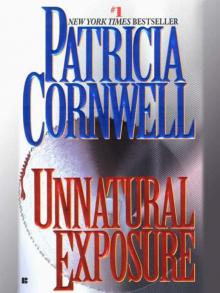 Unnatural Exposure
Unnatural Exposure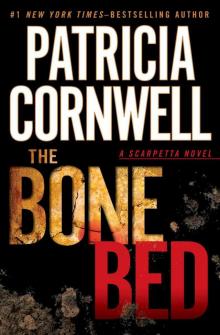 The Bone Bed
The Bone Bed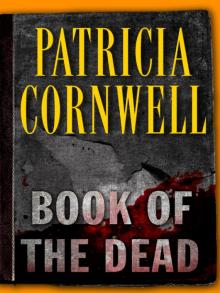 Book of the Dead
Book of the Dead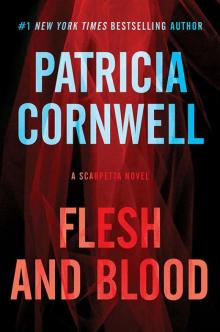 Flesh and Blood: A Scarpetta Novel (Scarpetta Novels Book 22)
Flesh and Blood: A Scarpetta Novel (Scarpetta Novels Book 22)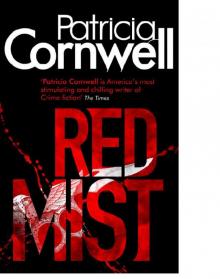 Red Mist
Red Mist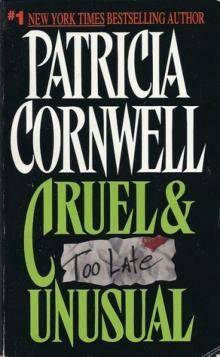 Cruel & Unusual
Cruel & Unusual Hornet's Nest
Hornet's Nest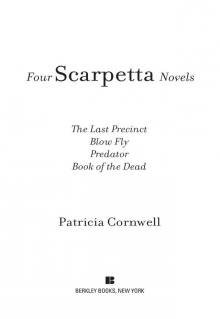 Four Scarpetta Novels
Four Scarpetta Novels Scarpetta's Winter Table
Scarpetta's Winter Table Isle of Dogs
Isle of Dogs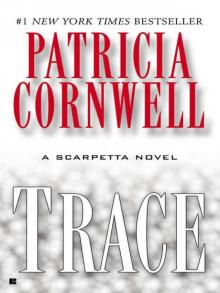 Trace
Trace Postmortem
Postmortem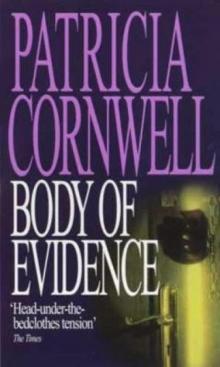 Body of Evidence ks-2
Body of Evidence ks-2 Southern Cross
Southern Cross All That Remains
All That Remains Point of Origin
Point of Origin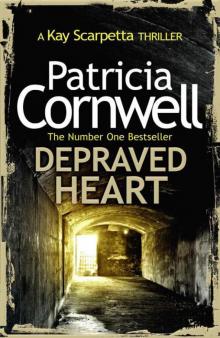 Depraved Heart
Depraved Heart Ruth, a Portrait: The Story of Ruth Bell Graham
Ruth, a Portrait: The Story of Ruth Bell Graham From Potter's Field
From Potter's Field Flesh and Blood
Flesh and Blood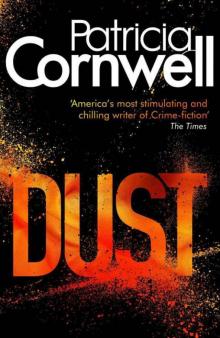 Dust
Dust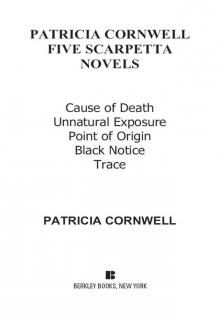 The Body Farm
The Body Farm Port Mortuary
Port Mortuary Quantum
Quantum Portrait of a Killer: Jack the Ripper - Case Closed
Portrait of a Killer: Jack the Ripper - Case Closed Spin (Captain Chase)
Spin (Captain Chase)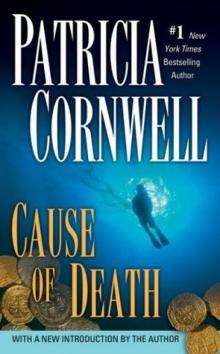 Cause of Death
Cause of Death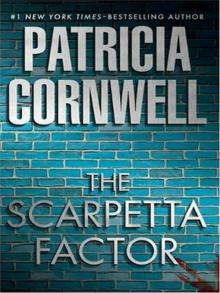 The Scarpetta Factor
The Scarpetta Factor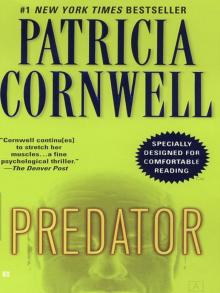 Predator
Predator Scarpetta 18 - Port Mortuary
Scarpetta 18 - Port Mortuary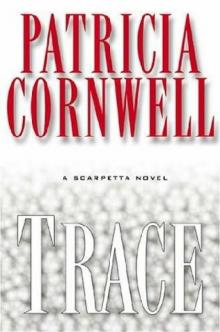 Trace ks-13
Trace ks-13 Portrait of a Killer
Portrait of a Killer Cruel and Unusual ks-4
Cruel and Unusual ks-4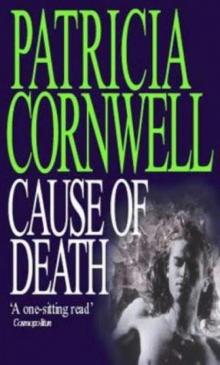 Cause Of Death ks-7
Cause Of Death ks-7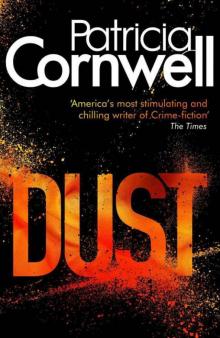 Dust ks-21
Dust ks-21 At Risk wg-1
At Risk wg-1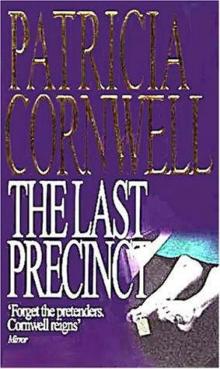 The Last Precinct ks-11
The Last Precinct ks-11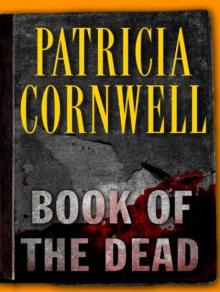 Book of the Dead ks-15
Book of the Dead ks-15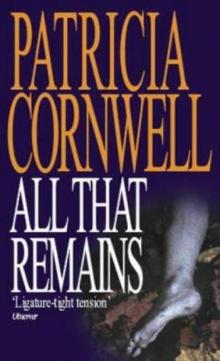 All That Remains ks-3
All That Remains ks-3 Ruth, a Portrait
Ruth, a Portrait Scarpetta's Winter Table (kay scarpetta)
Scarpetta's Winter Table (kay scarpetta) From Potter's Field ks-6
From Potter's Field ks-6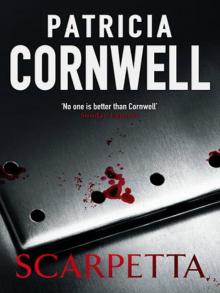 Scarpetta
Scarpetta Isle of Dogs jhabavw-3
Isle of Dogs jhabavw-3 Hornet's Nest jhabavw-1
Hornet's Nest jhabavw-1 The Body Farm ks-5
The Body Farm ks-5 Blow Fly ks-12
Blow Fly ks-12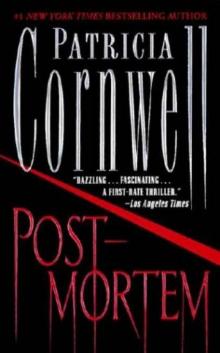 Post Mortem
Post Mortem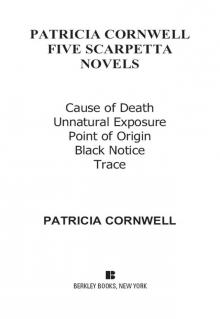 Five Scarpetta Novels
Five Scarpetta Novels Chasing the Ripper (Kindle Single)
Chasing the Ripper (Kindle Single) Point of Origin ks-9
Point of Origin ks-9 Port Mortuary (2010)
Port Mortuary (2010) Unnatural Exposure ks-8
Unnatural Exposure ks-8 Southern Cross uhabavw-2
Southern Cross uhabavw-2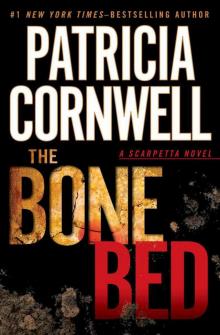 The Bone Bed ks-20
The Bone Bed ks-20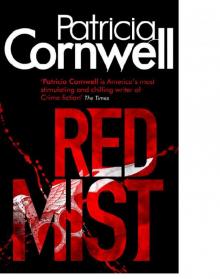 Red Mist ks-19
Red Mist ks-19 Port Mortuary (2010) ks-18
Port Mortuary (2010) ks-18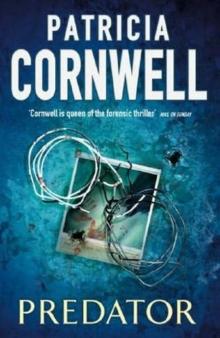 Predator ks-14
Predator ks-14